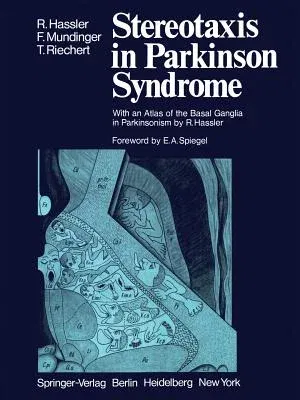R Hassler
(Author)Stereotaxis in Parkinson Syndrome: Clinical-Anatomical Contributions to Its Pathophysiology (Softcover Reprint of the Original 1st 1979)Paperback - Softcover Reprint of the Original 1st 1979, 29 June 2012

Qty
1
Turbo
Ships in 2 - 3 days
In Stock
Free Delivery
Cash on Delivery
15 Days
Free Returns
Secure Checkout
Print Length
320 pages
Language
English
Publisher
Springer
Date Published
29 Jun 2012
ISBN-10
3642665233
ISBN-13
9783642665233
Description
Product Details
Authors:
Book Edition:
Softcover Reprint of the Original 1st 1979
Book Format:
Paperback
Country of Origin:
NL
Date Published:
29 June 2012
Dimensions:
27.94 x
20.96 x
1.78 cm
ISBN-10:
3642665233
ISBN-13:
9783642665233
Language:
English
Location:
Berlin, Heidelberg
Pages:
320
Publisher:
Weight:
757.5 gm

